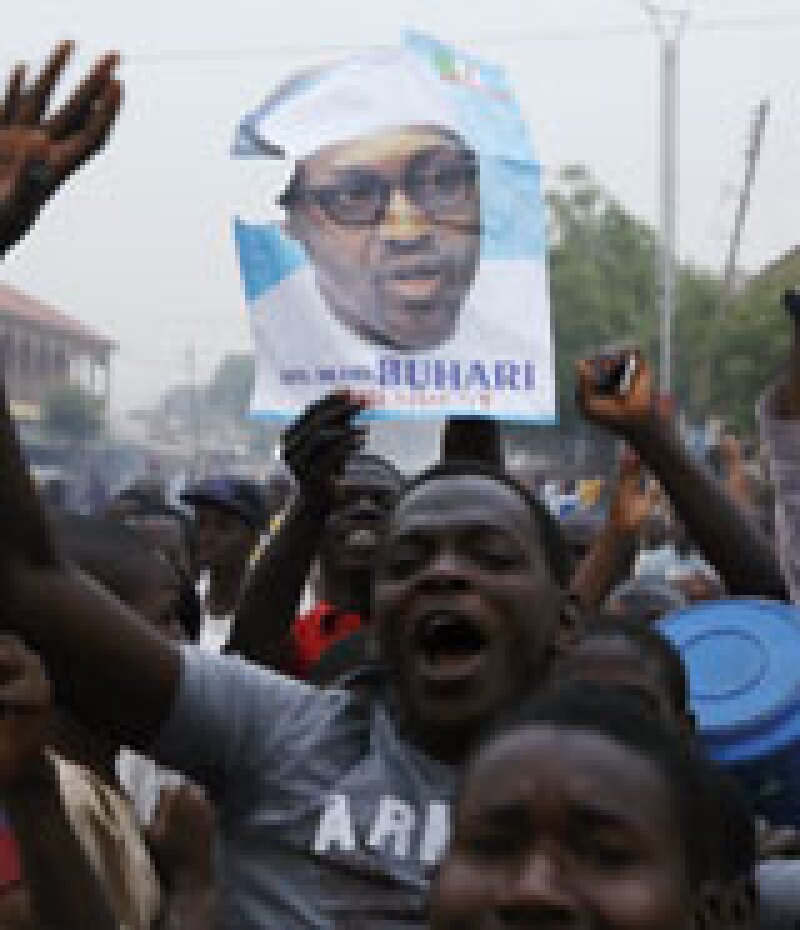By Olivier Holmey
The war on financial crime in Nigeria, which president Muhammadu Buhari pledged to wage as part of his election campaign last year, looks to be moving on to the country’s banks.
Nigerian lender Access Bank found itself under scrutiny on May 6 when, according to one of its senior bankers, representatives of the country’s Economic and Financial Crimes Commission (EFCC), accompanied by armed guards, unexpectedly visited the bank, requesting interviews with the CEO and chief compliance officer.
“It’s unbelievable,” the banker tells Euromoney. “It’s almost like a shakedown. In the normal course of business, the staff of banks are routinely invited [for an interview] when the EFCC, police or anyone is investigating a transaction. It’s fairly routine. But in this case, they came and almost created a scene.
"This is the first time they have come in with armed guards, unexpectedly, without motive.”
The EFCC’s visit to Access, as well as visits, in quick succession, to at least two other Nigerian lenders, Sterling Bank and Fidelity Bank, shows how visible Nigerian law enforcement’s fight against corruption has become. Critics of the EFCC’s methods argue that the theatrics are unnecessary. The banker at Access says the commission is “sensationalising the issues”.
He adds: “They were only asking for the bank’s cooperation, not an indictment or anything. It’s ridiculous.”
Investigations

|
Support for Buhari |
The interrogation of top management at Access, Fidelity and Sterling – which first circulated as rumours on Twitter, before being confirmed by all three banks in official statements – has left observers wondering if this could be the start of a broader investigation into Nigeria’s banking sector.
Since Buhari was elected on an anti-corruption platform, many believe he is behind the EFCC’s efforts. In May, local newspapers reported that Buhari had ordered the EFCC to probe the alleged misappropriation of the Geneva-based Global Fund’s healthcare grants to Nigeria between 2010 and 2014.
But Buhari himself has promised that, during his presidency, institutions dedicated to fighting corruption will be free from political interference.
Regardless of who is behind the investigations, some say any fight against financial crime is likely to include the country’s banks among its targets. For example, $16 billion of Nigeria’s oil wealth – Nigeria is Africa’s largest oil producer – vanished in 2014 alone, the country’s auditor general said in March, and, the thinking goes, such transfers of funds could not have happened without bank participation.
The state-owned Nigerian National Petroleum Corporation has denied the auditor’s claims.
No surprise
According to the Access source, the cause for the EFCC’s visit to Access was a safe deposit box the bank rented out to a customer for two days, “many months ago” — either last year or the year before that, the banker says. He will not name the customer but says it was a businessman, not a politician.
Access did not initially know what the client had kept in the box but, when asked by the EFCC on May 6, the source says the bank investigated the matter and quickly established what it had contained.
The banker says the EFCC had come to the same conclusion, independently from Access. In the box was $5 million, in cash. Asked whether this was a large amount for a single customer to hold in a deposit box, the Access banker says: “For the calibre of the customer, and the transactions the customer does, not necessarily.”
He defends his bank, saying: “It’s a single $5 million transaction, not a big figure, not a series of transactions.”
The EFCC wished to speak to the chief compliance officer to ensure Access had strong anti-money laundering rules in place, he says. He is surprised that Nigeria’s anti-corruption push would target a businessman, rather than a current or former politician, adding that none of those interviewed were detained following the EFCC’s visit.
Questions
As the officer was not immediately available, Sterling says the commission questioned senior management instead, including the CEO. The bank says the investigation was related to a non-bank financial institution that is a client of Sterling. The bank says it will review the compliance procedures of its non-bank financial clients, with the aim of strengthening this area of its operations.
As for Fidelity, it says the EFCC was investigating transactions it undertook in 2015. The EFCC says it was investigating N500 million ($2.5 million) it says was “collected” by a politician in the opposition’s People’s Democratic Party, the party of former president Goodluck Jonathan.
“The N500 million,” the EFCC says, “was part of the $115 million allegedly lodged in Fidelity Bank Plc, in controversial circumstances, during the 2015 electioneering campaign period by the immediate past minister of petroleum resources, Mrs Diezani Allison-Madueke (sic).”
Alison-Madueke has repeatedly denied accusations of wrongdoing levelled against her.